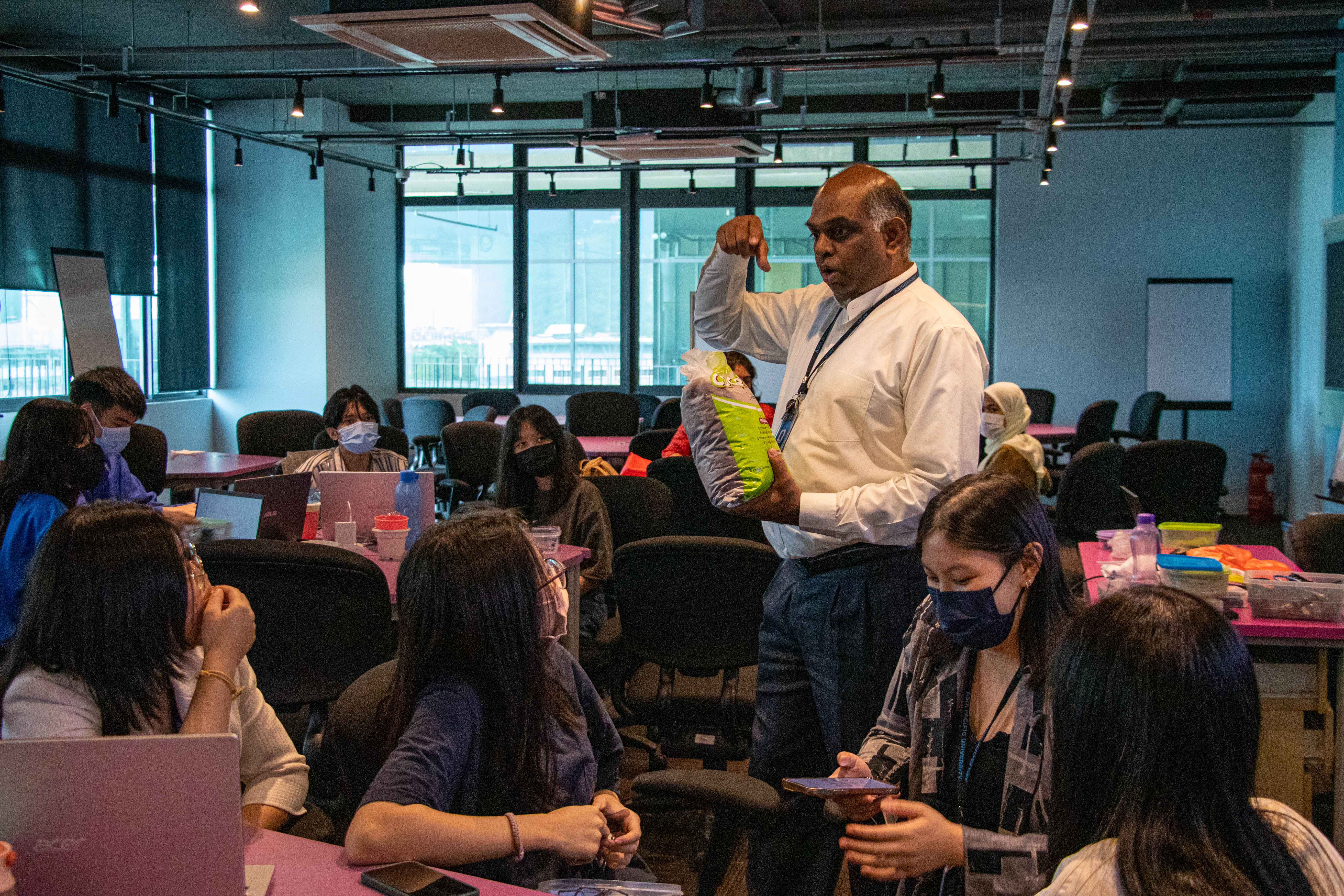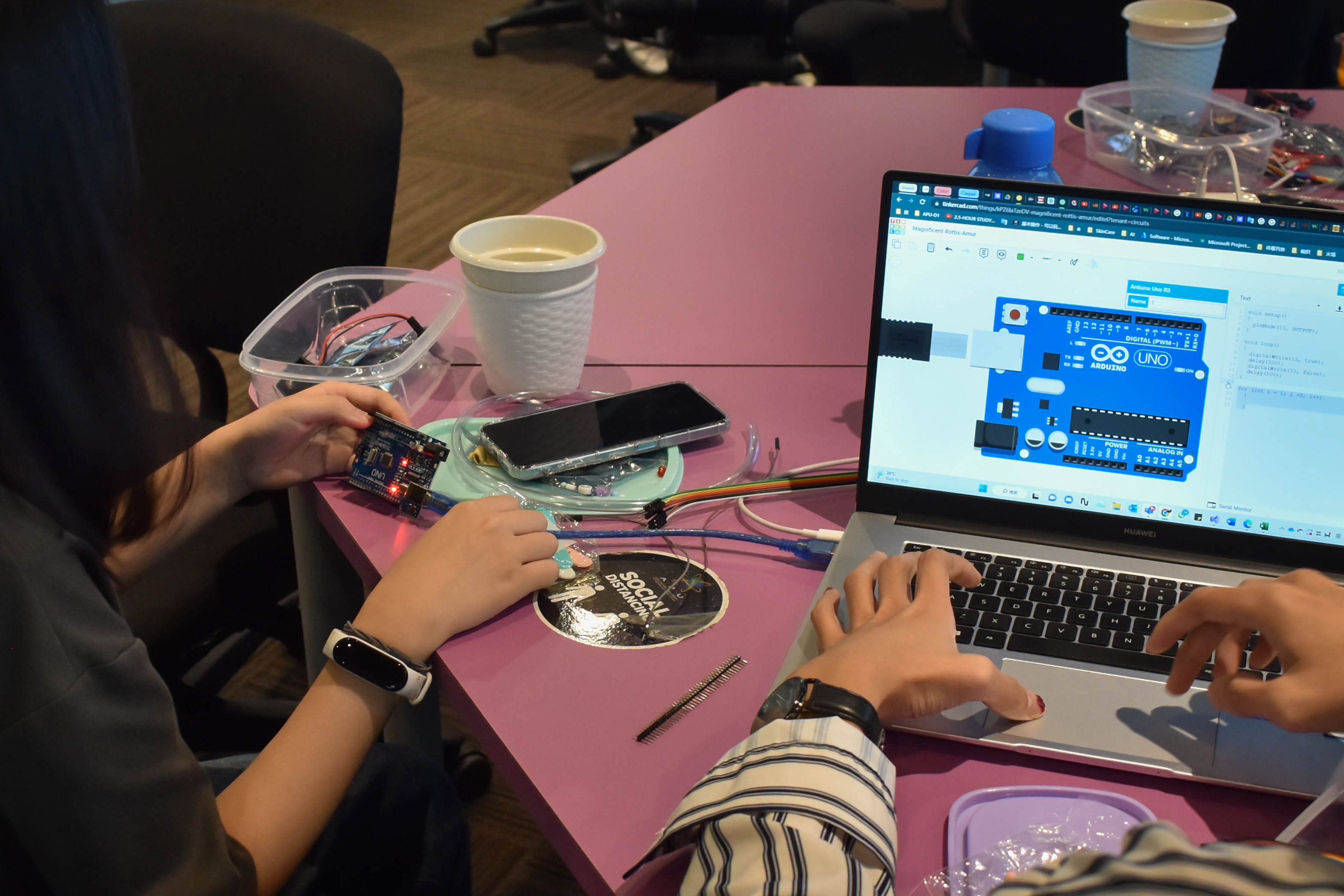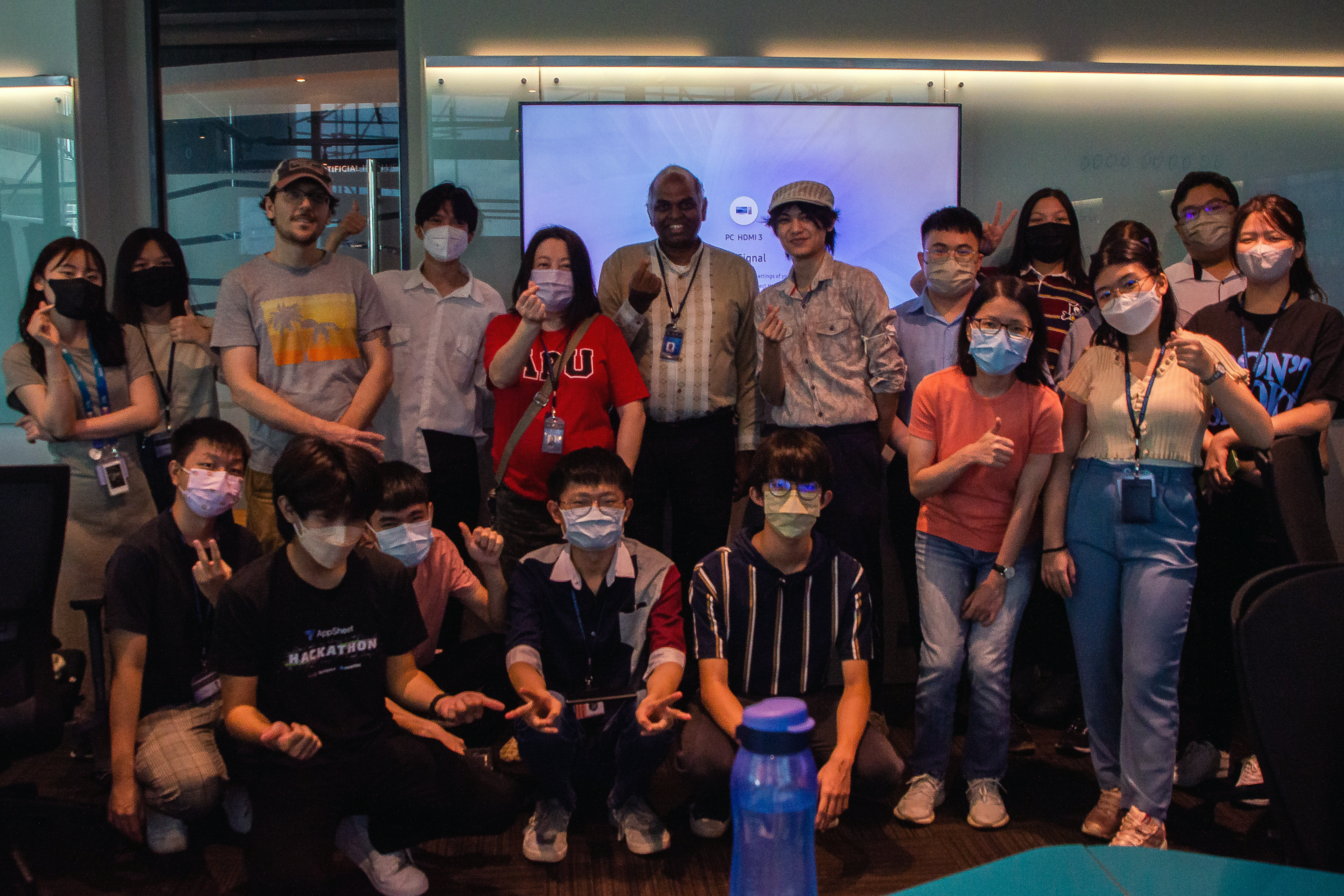You are here
Gain Extra Hands-on Experience at The Autonomous IoT Workshop
Instead of learning about Artificial Intelligence (AI) through traditional classrooms, SoT & SoC collaborated to organise an IoT workshop for students to gain additional hands-on experience with IoT practicals that can be used as a data source for AI systems.

The Internet of Things (IoT) is a network of physical devices, automobiles, home appliances, and other items integrated with sensors, software, and connection to exchange data with other devices and systems via the internet.
It can be utilised as a data source for Artificial Intelligence (AI) systems, as discussed in the AI module’s chapter on the autonomous system.
The School of Technology (SoT) and the School of Computing (SoC) collaborated to conduct a two-day workshop session with the goal of building an Automatic Plant Watering System using Arduino UNO and Soil Sensors to give students a deeper understanding and additional hands-on experience with IoT technology.
Senior Lecturer Dr. Kamalanathan Shanmugam began the workshop by introducing the Arduino UNO, Breadboard, and its components, including the soil sensor, water pump, and relay module.

Meanwhile, students were reminded of the importance of following electrical safety precautions and guidelines.
Following that, all students were given practical exercises to build their Automatic Plant Watering System.
The practical activities were carried out in a step-by-step manner, allowing students to follow along and construct their systems.
This session gave students hands-on experience, allowing them to apply what they learned from the workshop to real-world scenarios. This can help them to develop a deeper understanding of how IoT technologies can be used in AI applications.

The workshop was a great experience for Master of Science Artificial Intelligence student, Steffen Blankenburg, as it helped him understand the basics of setting up an IoT test environment as well as providing a good understanding of what hardware and software are required and how they interact with each other.
“The IoT workshop exceeded our expectations in that we comprehended all of the basic introduction and first insights into the world of IoT.
“It was really beneficial in learning about the basic programming process and the strategies required to construct more advanced IoT systems with a greater impact, such as using AI for controlling, monitoring, or forecasting IoT components.
“What we learn in this workshop can be applied to other projects. It would be nice if more workshops like this were offered at APU, possibly even a series with basic and advanced techniques,” he said.

Lai Tzi Syuen Suzanne, a Computer Science (Intelligent Systems) student, is taking part in her first IoT workshop, which provides a practical introduction from A to Z.
“I learned a lot from this IoT workshop, and it was very interesting to learn how to build an automatic self-watering pot.
“In my opinion, this practical learning method is more interesting because it is easier to understand because we build what we learn ourselves,” she said.
Special thanks to Assoc. Prof. Ts. Dr. Vinothini Kasinathan and Ms. Tham Hoong Ching, who initiated and facilitated this workshop for AI students.


